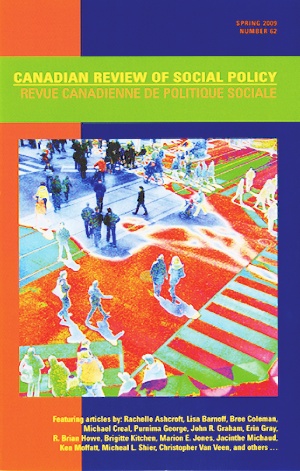La representation des besoins et l'obstacle de la double loyaute dans la recherche feministe: essai d'epistemologie autour de l'informatrice autochtone de Gayatri Spivak
Abstract
En s'inspirant du texte, c Can the Subaltern Speak? D de Gayatli Chakravorty Spivak, cet article propose une analyse critique de la dynumique relationnelle entre chercheures universituires et praticiennes fiministes qui interwiennent dans les groupes de base : groupes de femmes et groupes communautaires. Deux questions guident l'anulyse : 1 ) Que devient 1' K autre dans sa parole et ses actions lors des e'changes entre ces types d'intellectuelles ; 2) Quels sont les besoins de'fendus lorsque certuines repisentations &coulant de ces &changes szirgissent du c6t& de l'espace public/politique. Gayatri Spivak, the'oricienne de la post-colonialite', a interroge' les ambigu~te's et les de'tournements de sens ol~he'psa r les intellectuel-les lorsqu'elles/ils disent faire valoir la voix des subalternes. Cette question est fondamentale pour une ipist6mologie de la recherche fe'ministe. Notre contribution sera de mettre en relief le r6le de la native informant D , personnuge he'tkroghe que Spivak met en sdne duns son essai et d'essayer de diager les conditions d'autonomie de parole et d'action des femmes en condition de subalternite'. Abstract Inspired by Gayatri Chalcravorty Sgivak's "Can the Subaltern Speak?", this article presents a critical analysis of the dynamics of relationships between female academic researchers and feminist practitioners who are stakeholders in grass roots groul>.s, i.e. women's groups and community groups. The analysis is based on two questions: 1 ) What t r a n s f m t i o n does 'the other' undergo in her words and her actions during interactions among these types of intellectual women; 2) What types of needs are defended when some representations resulting from these interactions appear suddenly in the publiclpolitical sphere. Gayatri Spivak, a post-colonial theoretician, questioned the ambiguities and the changes of meaning hought about by intellectual men and women when they claim to be putting forth the voice of a subordinate. This is a fundamental issue for an epistemology of feminist research. This contribution etnphasires the role of the "native infmant", a heterogeneous character that Spivak features in her essay in an attempt to find the conditions for an independent voice and action for women of subordinate status.Downloads
Published
How to Cite
Issue
Section
License
1-The author guarantees that the manuscript is an original work not published elsewhere in print or electronically in whole or in part, except in abstract form, that the author has the full power to make this contribution, and that the manuscript contains no matter libelous or otherwise unlawful or which invades the right of privacy or which infringes any proprietary right.
2-The author guarantees that the manuscript has not been previously published in print or electronically and that if the manuscript contains any tables, figures or images fully reproduced or closely adapted from previously published material, the author must obtain the necessary permission from the author/publisher holding the original copyright prior to publication in CRSP. The author may be required to produce evidence of permission granted to CRSP’s editors.
3-As a condition of publication in CRSP, the author assigns all copyright to CRSP, including but not limited to the right to publish, republish, and otherwise distribute this manuscript in print, electronic, or other formats. As CRSP is a non-profit interdisciplinary scholarly journal, the author will receive no royalty or other monetary compensation for the assignment set forth in this agreement.
For the purpose of full disclosure, CRSP will not normally use the content provided by the author in a commercial venture, but for the purpose of disseminating the author’s content to as many readers as possible. For distribution, third parties engaging in commercial activities may be contracted to distribute the content globally, and such parties may make a profit out of the author’s content in their normal course of business. CRSP will not pay the author or reimburse the author in any form based on such commercial activities because the conduct of such commercial activities is outside the control of CRSP.
Any future reference to or use of this published material by the authors must acknowledge CRSP as the original place of publication.
PERMISSION REQUEST/ARCHIVING
Permission is given to author(s) receiving funding via Tri-Council Agencies, the Canadian Institutes of Health Research (CIHR), the Natural Sciences and Engineering Research Council of Canada (NSERC) and the Social Sciences and Humanities Research Council (SSHRC), to make their publications freely available in an Open Access repository within the stated deadline by the Tri-Council Agencies (12 months following publication). Archiving of publication must be a manuscript copy bearing none of the CRSP headers, footers or any other distinguishing marks. No links to the article on the CRSP website is permitted.
Permission requests from third parties to reproduce articles in part or full in academic/educational publications can be directed to the managing editor of CRSP, and will not be unreasonably denied.

